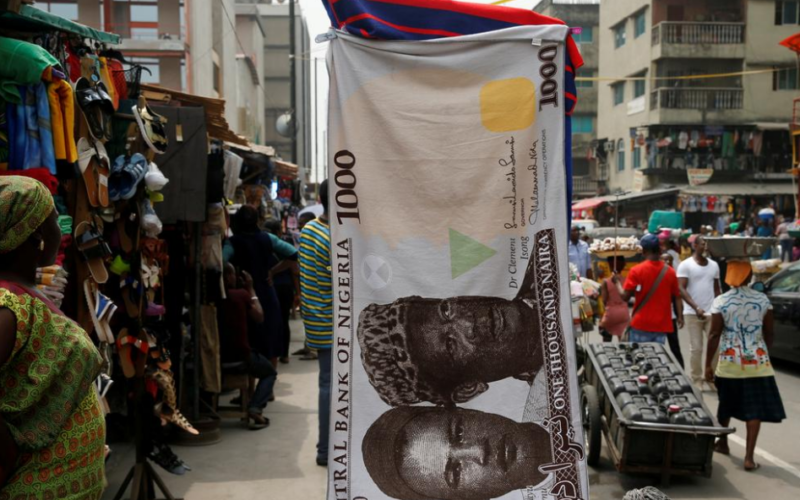Nigeria, Africa’s largest economy, is grappling with an alarming surge in inflation, reaching a 27-year high in December. The latest data from the National Bureau of Statistics reveals that the inflation rate climbed to 28.9% from a year earlier, primarily driven by the elimination of fuel subsidies, resulting in heightened transport costs and the depreciation of the naira.
The inflation rate of 28.9% in December marks the fastest annual pace in nearly three decades, surpassing the 28.2% recorded in November. The National Bureau of Statistics reported a month-on-month price increase of 2.3%. This surge in inflation has significant repercussions for Nigeria’s economy, impacting both consumers and policymakers.
Two key factors are identified as the primary drivers behind Nigeria’s inflationary pressures. Firstly, the removal of fuel subsidies in June led to a nearly 50% devaluation of the naira by the end of 2023. Secondly, the subsequent elimination of the fuel subsidy in November resulted in a nearly threefold increase in transport costs. These combined factors have created a challenging economic environment, particularly for a nation where over 40% of its 200 million-plus population live in extreme poverty.
Nigeria has been contending with inflation rates surpassing the upper band of the central bank’s target range of 6% to 9% since 2015. The ongoing challenges have raised concerns among economists, with Bloomberg Africa Economist Yvonne Mhango suggesting that policymakers may need to consider exceptionally large rate hikes in the first half of the year to curb inflationary pressures. However, the central bank has yet to announce the schedule for its next monetary policy committee meeting.
The soaring inflation poses significant economic challenges, impacting the cost of living for consumers and raising concerns about social and economic stability. Policymakers face the delicate task of implementing measures to rein in inflation without unduly burdening the already vulnerable population. The potential for large rate hikes indicates the urgency of addressing the economic imbalances caused by the depreciation of the national currency and escalating transport costs.
The repercussions of inflation are particularly felt by the Nigerian population, where a substantial portion lives in extreme poverty. Elevated prices for essential goods and services can exacerbate the struggles of vulnerable communities, necessitating targeted interventions to mitigate the adverse effects on livelihoods.
Nigeria’s inflationary challenges, driven by the removal of fuel subsidies, currency devaluation, and soaring transport costs, present a complex economic landscape. As the nation grapples with the highest inflation rate in nearly three decades, policymakers face critical decisions in formulating effective strategies to stabilize the economy, protect vulnerable populations, and foster sustainable growth. The coming months will be crucial in determining the trajectory of Nigeria’s economic recovery and the success of policy measures aimed at curbing inflation and promoting stability.








